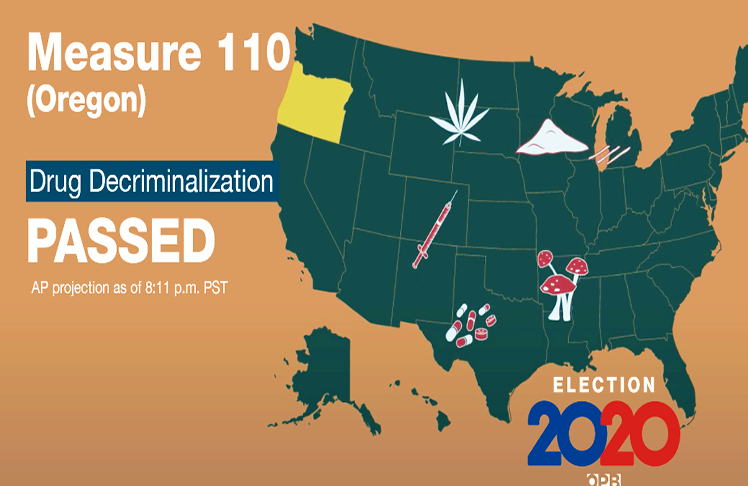
Oregon once again shows leadership in the fight against the problems created by a long and fail war on drugs. The Oversight and Accountability Council, created as part of Measure 110 last year has announced plans to distribute $270 million to the organizations that will treat those addicted to drugs. Measure 110 essentially decriminalized possession of user amounts of hard drugs — including heroin, cocaine and meth — by changing the relevant offense from a misdemeanor to a violation, similar to a parking citation, punishable by a $100 fine or completing a health assessment over the phone.
The Oregon Health authority confident the new treatment networks will provide a holistic solution that reduces harm and is “more helpful, caring and cost-effective than punishing and criminalizing people who need help,” according to a news release. Oregon is now where so states wish they were on this issue.
Arrests for drug possession have plummeted across Oregon from a monthly average of about 1,200 to 200; this year’s arrests tend to be for dealer quantities, state officials report. The new approach represents a pivot from police, jail and courts toward treatment and recovery.
The OAC previously awarded $33M in Access to Care grants to 48 organizations, Oregon’s Nine Federally Recognized Tribes and the Urban Indian Health Program, to deliver services to communities most impacted by substance use disorder, including communities of color and Tribal communities.
The law redirects millions of marijuana tax revenue from schools and other public agencies to substance abuse treatment and services to support those recovering from addiction, but the bulk of the money hasn’t yet been distributed. The impact of the new law on drug courts statewide isn’t yet clear. The specialty courts, common around Oregon and the country, are an alternative to incarceration and provide close court supervision, sanctions and support to help people with drug and alcohol addiction transition to a sober and law-abiding life. A spokesperson for Multnomah County Circuit Court, which operates multiple drug courts, said Friday the court hadn’t analyzed its data.















